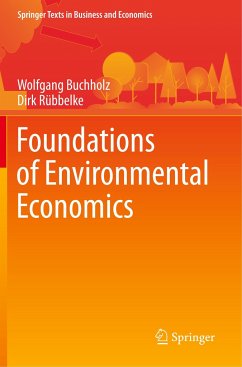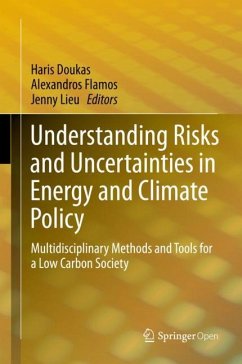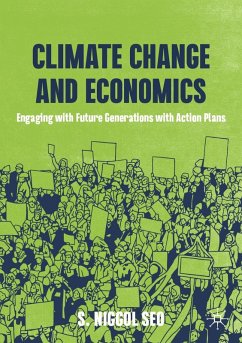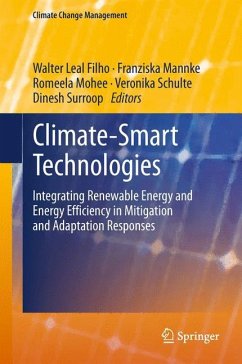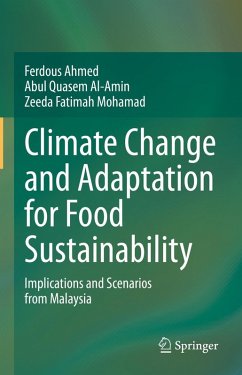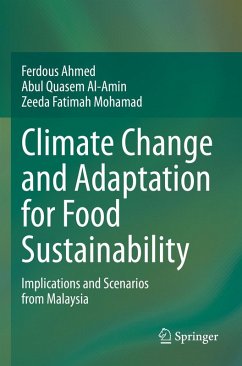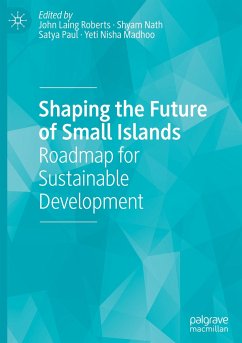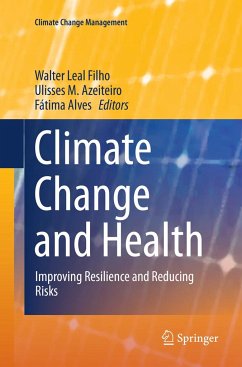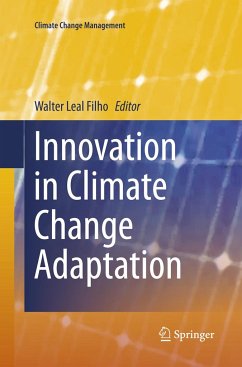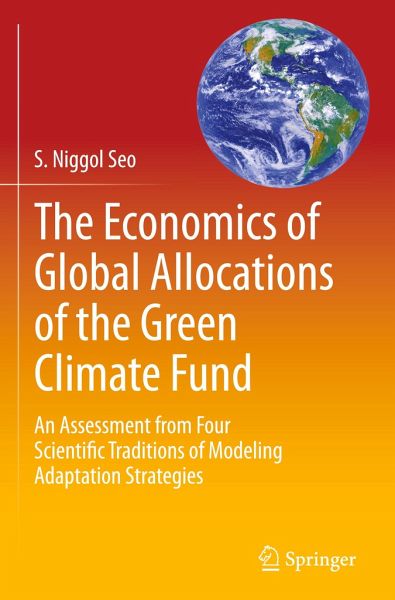
The Economics of Global Allocations of the Green Climate Fund
An Assessment from Four Scientific Traditions of Modeling Adaptation Strategies
Versandkostenfrei!
Versandfertig in 6-10 Tagen
76,99 €
inkl. MwSt.
Weitere Ausgaben:

PAYBACK Punkte
38 °P sammeln!
This book provides an incisive and economic assessment of the global warming adaptation policy and programs carved out by the United Nations Framework Convention on Climate Change, the Green Climate Fund (GCF), by relying on the four scientific traditions that have been advanced on the economics of adaptation to climate change in agricultural and natural resource enterprises.Substantially expanding and refocusing on the book Micro-behavioral Economics of Global Warming: Modeling Adaptation Strategies in Agricultural and Natural Resource Enterprises published by Springer in 2015, this book eluc...
This book provides an incisive and economic assessment of the global warming adaptation policy and programs carved out by the United Nations Framework Convention on Climate Change, the Green Climate Fund (GCF), by relying on the four scientific traditions that have been advanced on the economics of adaptation to climate change in agricultural and natural resource enterprises.
Substantially expanding and refocusing on the book Micro-behavioral Economics of Global Warming: Modeling Adaptation Strategies in Agricultural and Natural Resource Enterprises published by Springer in 2015, this book elucidates the theories and summarizes the empirical results and predictions from the four traditions of adaptation modelling: a microbehavioral economic model of adaptation, an agronomic-economic modelling, a statistical model of yield/productivity changes, and an ecosystem model of climate change impacts. The four modeling traditions are freshly analyzed and applied to the assessments of the 93+ GCF-funded projects and programs through the end of 2018.
Substantially expanding and refocusing on the book Micro-behavioral Economics of Global Warming: Modeling Adaptation Strategies in Agricultural and Natural Resource Enterprises published by Springer in 2015, this book elucidates the theories and summarizes the empirical results and predictions from the four traditions of adaptation modelling: a microbehavioral economic model of adaptation, an agronomic-economic modelling, a statistical model of yield/productivity changes, and an ecosystem model of climate change impacts. The four modeling traditions are freshly analyzed and applied to the assessments of the 93+ GCF-funded projects and programs through the end of 2018.




